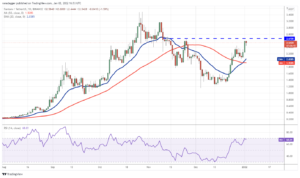The United Nations (UN) met this August 1st to analyze the agreement on the non-proliferation of nuclear weapons treaty (NPT). The agreement would expire in 2020 but, due to the pandemic, it was renewed until 2026.
Thus, in front of the world’s gaze on the issue, the leaders of the main nations that have nuclear weapons spoke out on the issue. The tone of both was towards conciliation, which was mainly driven by Putin’s speech that a nuclear conflict could not have winners.
The Nuclear Non-Proliferation Treaty (NPT)
The nuclear non-proliferation treaty (NPT) was initially signed in 1968 during the Cold War. The treaty was drafted to prohibit nations from developing nuclear technology for war purposes and to regulate the gradual disarmament of those nations that had already developed nuclear weapons.
At the time, the United States, China, Russia, France, England and China already had nuclear weapons arsenals, and not coincidentally, they are still members of the UN Security Council.
The signing of the treaty took place gradually among the countries of the world. Currently, 189 countries are signatories. The exceptions are Israel, Pakistan, China and North Korea.
The big question for countries to sign or not would be the guarantee of greater strength for countries that had the technology. This is a very sensitive issue, especially when analyzing non-signatory countries. In addition, monitoring compliance with the treaty is also quite difficult, as it involves the sovereignty of States.
The peculiar case of Russia is quite complex. At the time of the signing of the treaty, the country was still the largest in the Bloc of the Soviet Union. After the fall of the system, the stockpile was dispersed among the member countries of the bloc, which makes it difficult to control the stockpile situation. The biggest fear is that this material will fall into the hands of political or religious radicals.
The current positioning
Faced with the need for periodic re-discussion of the issue, especially in the midst of the war between Russia and Ukraine, both leaders of the countries with the greatest arsenal spoke about the agreement.
On the one hand, Putin, President of Russia, declared in a letter to the UN commission for the NPT that there could be no winners in a nuclear war and that such a conflict should never be unleashed.
On the other hand, US President Biden declared himself ready to negotiate a new agreement with the objective of increasingly reducing the risks associated with controlling nuclear weapons. However, Biden expects cooperation from all nations, especially Russia, which recently declared war on Ukraine.
Despite the political instability, the main leaders agree to establish efficient rules to combat nuclear weapons and there is even talk of resistant communication between these countries to establish limits.
This is an extremely important discussion at this time, especially since Russia and Ukraine have accused each other of playing with the danger of nuclear power plants in the midst of war. The bombings near nuclear reactors make the dispute take on an increasingly sensitive character.
In general terms, the position of the main nations of the world on the NPT takes place in a conciliatory tone. This is actually one of the issues in which international diplomacy advances the most. The danger of nuclear war is known to all and threatens the existence of the human race as a whole.
Thus, although disputes between countries are far from over, the consistency and permanence of the NPT is certainly something that ensures the security of all citizens of the world.
- Bitcoin
- blockchain
- blockchain compliance
- blockchain conference
- coinbase
- coingenius
- Consensus
- crypto conference
- crypto mining
- cryptocurrency
- decentralized
- DeFi
- Digital Assets
- ethereum
- machine learning
- news
- non fungible token
- plato
- plato ai
- Plato Data Intelligence
- Platoblockchain
- PlatoData
- platogaming
- Polygon
- proof of stake
- Update on Bitcoin
- W3
- zephyrnet







